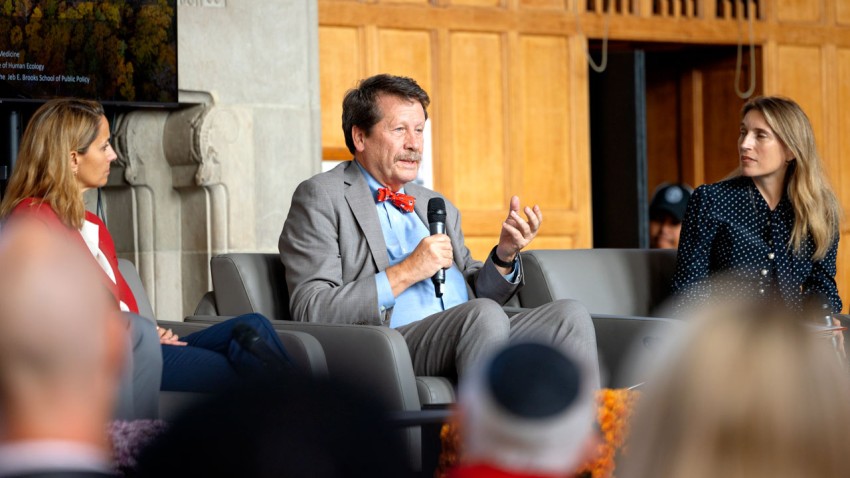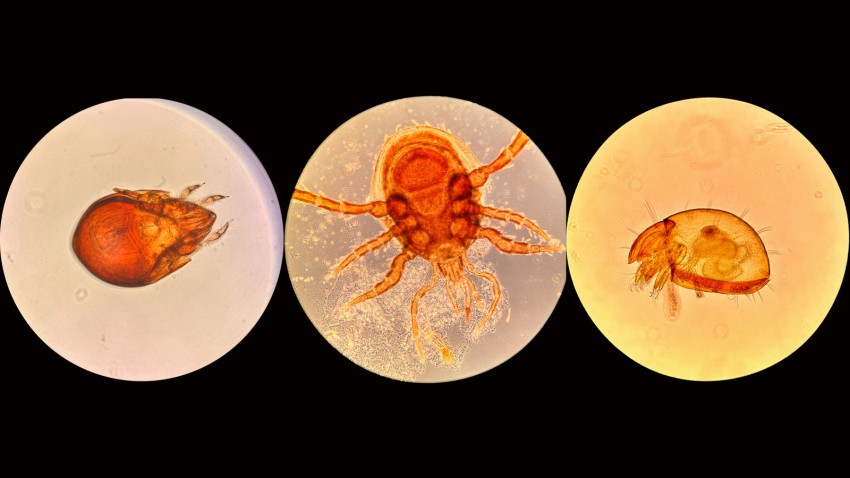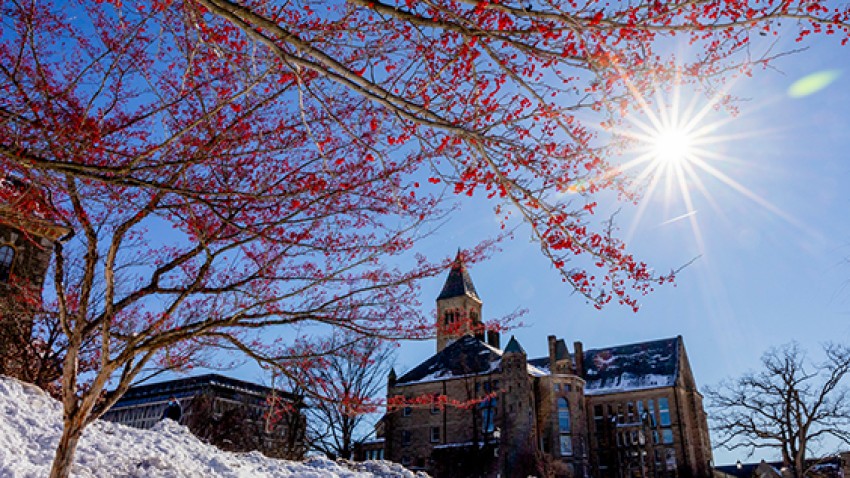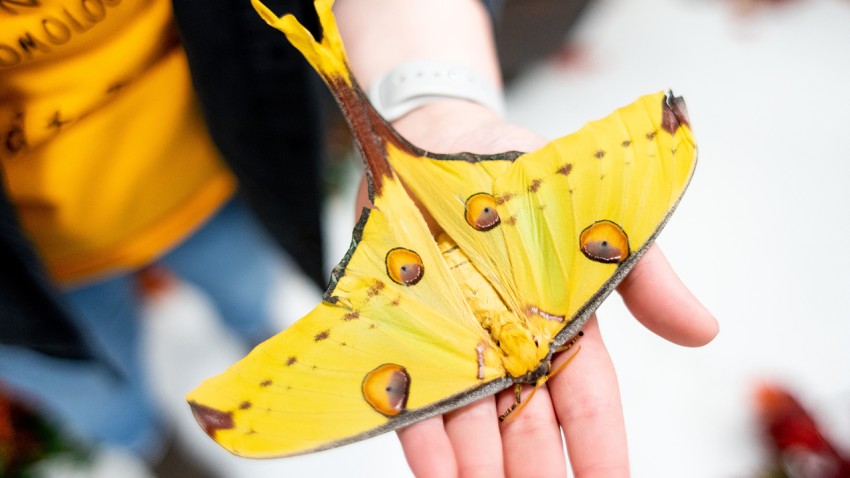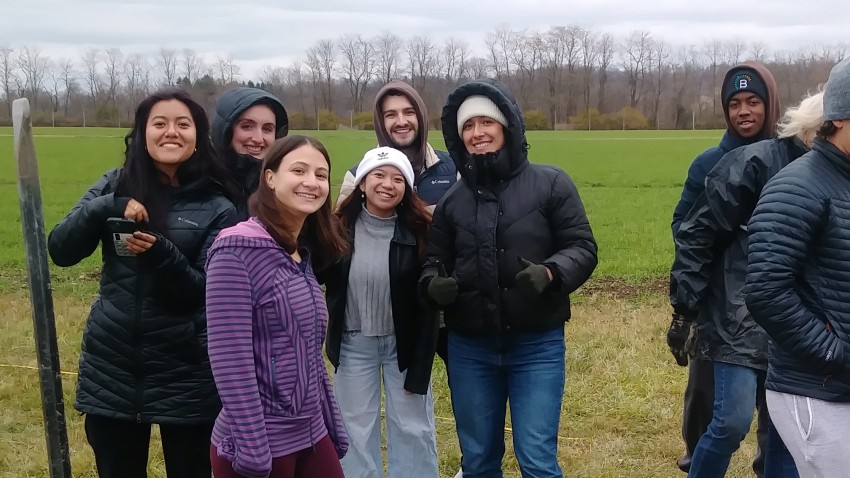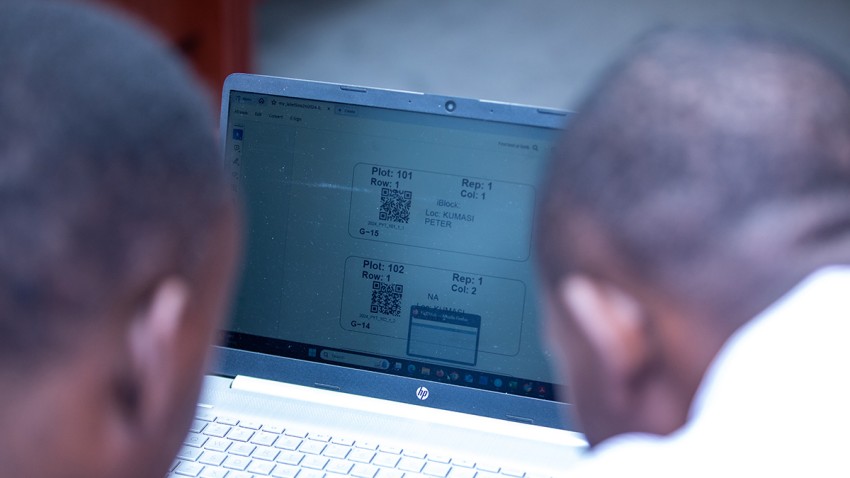News
The fireside chat was part of a two-day visit by Dr. Robert M. Califf, commissioner of the U.S. Food and Drug Administration, who focused on medicine and health care innovations.
The assortment of species of tiny soil animals – small enough to stand on the head of a pin – differ from one urban park to another, unlike plants and larger animals where a few species are often found across many parks.
Online Winter Session classes run January 2–18, 2025.
The creepy crawlies are king at Insectapalooza this weekend, but there are many other things to do across campus this week, from events to help you find balance and mindfulness to a musical duo that weaves traditional storytelling into their performances.
Researchers have identified the origin of ovarian cancer that develops in the fallopian tube, which opens doors to discovering new methods for diagnosing the disease and potential therapies.
A novel method for estimating the rate of photosynthesis from land plants reveals that satellite observations underestimate this important metric.
While supporting research through its nine farms and 127,000 square feet of greenhouses, Cornell AES facilities are also used as a unique teaching environment for two dozen Cornell undergraduate courses.
The program introduces powerful tools for data visualization and analysis, helping to strengthen research capacity in plant breeding programs around the world.
The 2024 Eclectic Convergence conference in New York City, organized by Entrepreneurship at Cornell, is set for Nov. 15.
A year of hackathons kicks off Oct. 25-27 with the Food Hackathon in Stocking Hall, which focuses on finding solutions that address hunger, poor nutrition, food waste and other food-related challenges.

